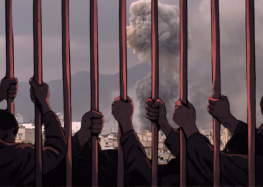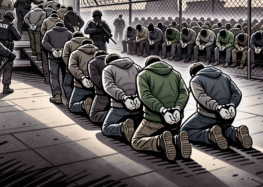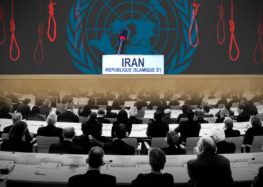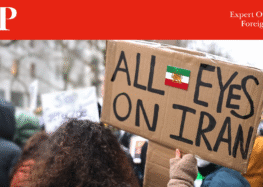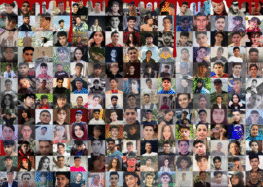Mohammad Ali Dadkhah Refuses to Make TV Confessions, Starts 9-Year Prison Sentence
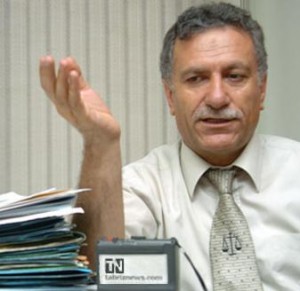
Mohammad Ali Dadkhah
Human rights lawyer and activist Mohammad Ali Dadkhah, who was under pressure to provide televised confessions against the Defenders of Human Rights Center, commenced his nine-year prison sentence at Evin Prison on Saturday, September 29. The prominent lawyer was also sentenced to a ten-year ban on his legal practice and teaching. “According to the summons form, Mr. Dadkhah had to turn himself in at Evin Prison by Thursday, September 27, but he asked for two more days in order to participate in his brother’s memorial service in Isfahan. When he returned, he appeared at the prison at about 2:00 pm,” a source close to the family of Mohammad Ali Dadkhah, who requested anonymity for security reasons, told the International Campaign for Human Rights in Iran.
After an appeals court upheld his sentence, Dadkhah was under immense pressure from security forces to provide televised confessions. According to the forces, if he agreed to make the confessions, his imprisonment could have been prevented. In an interview with the Campaign on May 11, 2012, Dadkhah said, “They told me that if I don’t confess they will enforce the sentence. Tomorrow is my last day to either make televised confessions or go to prison. I will go to prison, and I will not [be forced to] leave my homeland.”
The pressure appeared to ebb once this news was published. Security forces then told him that if he refrained from giving interviews to foreign media, he would not go to prison. During recent months, Dadkhah did not give any interviews to foreign media. Though he was banned from practicing law, judicial authorities allowed him to attend the trial of Christian pastor Youcef Nadarkhani, one of his clients.
Mohammad Ali Dadkhah is the fifth member of the Defenders of Human Rights Center to be imprisoned. Before him, Nasrin Sotoudeh, Mohammad Seifzadeh, and Abdolfattah Soltani were arrested between September 2010 and September 2012. Narges Mohammadi was also arrested in April 2012, but was released due to her illness on July 31.
During the same May 11 interview, Dadkhah told the Campaign that he was under pressure to give an interview against the Defenders of Human Rights Center. “I think it unjust for them to put pressure on someone, telling him to go on television and say things and say I got paid from abroad. This would mean that we were foreign agents, but such a thing is not true. We were a group of lawyers who through our love for our land, our capabilities, and our knowledge of our profession, started the Center, and we were working there,” he told the Campaign.
Mohammad Ali Dadkhah represented many political prisoners and student activists. He was arrested for the first time on July 8, 2009, on charges of possessing drugs, arms, and documents that indicated he was connected to enemy states, and his offices were shut down. He never admitted to possessing such items at his offices. Dadkhah was released on September 13, 2009, on bail of $700,000. On May 21, 2011, Branch 15 of Tehran Revolutionary Court sentenced Mohammad Ali Dadkhah to nine years in prison and a ten-year ban on his legal practice and teaching jobs on charges of “membership in the Defenders of Human Rights Center,” “interviewing with foreign media,” and even “representing the plaintiffs in the case of Isfahan subway.” An appeals court upheld Dadkhah’s sentence in full on April 29, 2012.

